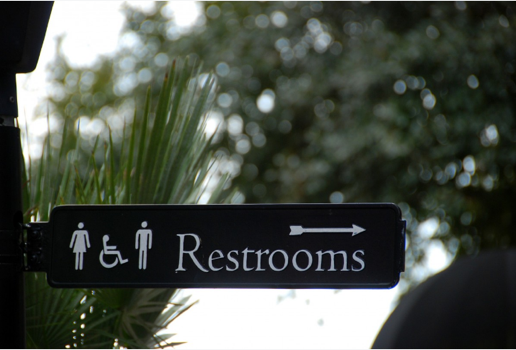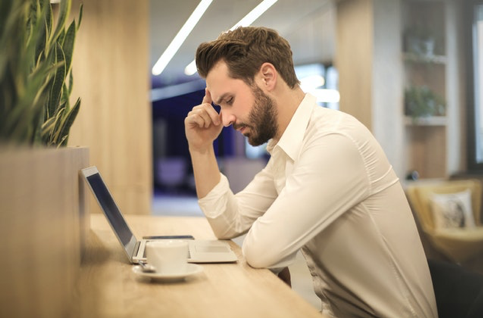What is urge incontinence? If you’re aware of what it means to have an overactive bladder and a frequent urge to urinate, then you probably know about urge incontinence. There are many types of incontinence that affect both men and women. Incontinence affects women the most due to weak pelvic and vaginal muscles. This can occur as a result of complicated childbirth and aging. In this post, you’ll learn about the types of incontinence, symptoms, and complication.

(Source)
It’s quite difficult to go by your daily routine when you have to keep walking discreetly to the restroom several times within a short period. Therefore, knowing the symptoms of this health condition early on can help with prevention and timely treatment.
Types of Urge Incontinence
You may already know that frequent urges to urinate don’t always go as planned. You cannot always control the sudden urge to urinate and may have to stop whatever work you’re doing to take a trip to the restroom. But, it gets frustrating when it’s only been half hour before you get the urge to urinate again. Hence, frustration, stress, anxiety, and depression are among the most common symptoms resulting from urge incontinence.
However, the major symptom involves leakage of urine during sleep, straining exercise, laughing, sneezing, or coughing. If you tend to lose control over your bladder tissues and pelvic muscles during a straining physical activity, you might have urge incontinence. In that case, a visit to the right urologist for treatment is necessary.
Here’s a list of several types of incontinences that affect both men and women:
· Urge Incontinence
It’s when you keep getting frequent strong urges to urinate, and most of the time, you end up losing urine involuntarily. Urge incontinence can persist throughout a 24-hour period meaning that affected patients may have to get up more than once a night to urinate.
· Functional Incontinence
This type of incontinence is somewhat correlated with other medical health issues. For instance, if you’re experiencing a sudden urge to urinate and you fail to reach the restroom in time, it may lead to unintentional urine loss.
· Overflow Incontinence
This happens when you urinate and feel that the bladder isn’t completely empty. Commonly, it’s followed up by constant dripping of urine due to bladder health conditions.
· Stress Incontinence
It’s related to the unintentional loss of urine when you sneeze, cough, or laugh too hard. In other words, when you put a strain on your pelvic muscles and bladder tissues, involuntary urine loss occurs.
· Mixed Incontinence
It refers to a combination of incontinences manifesting multiple symptoms at once. For instance, an individual with mixed incontinence might have urge incontinence and stress incontinence.
Causes of Urge Incontinence
When abnormal bladder contractions occur, the body loses control over the bladder tissues and, subsequently, pelvic muscles. That causes the sphincters, i.e., strong muscles, to relax temporarily, making it difficult for you to control urine loss. During urge incontinence, the bladder muscles contract with so much force that they override the strength of the sphincter muscles located in the urethra. Note that the urethra is the tube that offers the passage for urine secretion out of the body.
When the bladder’s irritated, urge incontinence can be a temporary symptom. On the other hand, if you have multiple sclerosis, Parkinson’s disease, or diabetes, your bladder may start malfunctioning and lead to incontinence. Here are several causes of behind this issue due to bladder malfunction:
- Bladder inflammation
- Bladder cancer
- Bladder stones
- Nerve problems
- Spinal cord injuries
Symptoms of Urge Incontinence
Here are the most prominent signs of urge incontinence that are common in both men and women affected by the bladder condition:
- Involuntary urine loss during a strenuous physical activity like bending, lifting, exercising, and other normal daily activities.
- Strong and frequent urges to urinate that are extremely difficult to control.
- Bed wetting.
- Urine loss without any sign or urges.

(Source)
Risk Factors of Urge Incontinence
Some people are at a higher risk of contracting bladder issues. Several risk factors increase the chances of developing the said conditions. Those factors include:
- Gender: Women who go through childbirth and menopause experience difficult pelvic and vaginal muscles movement.
- Smoking: Tobacco and other harmful chemical substances in cigarettes increase the chances of developing several health conditions, including urge incontinence.
- Age: With age, bladder and pelvic muscles weaken, leading to less control over the involuntary urine loss through the bladder.
- Obesity: Additional fat and muscle weight strains the bladder tissues and pelvic muscles, leading to difficulty urinating or control once in the process.
Urge Incontinence: Conclusion
Just like any health condition that interferes with your daily routine and regular lifestyle requires immediate medical care, finding the perfect urologist for that job is important. At Fifth Avenue Urology, Dr. Yaniv Larish, and Dr. Leonard Glickman, operate as the top urologists in NYC. Both doctors have extensive experience in dealing with urological and bladder issues. They also have surgical skills and have successfully helped many patients suffering from incontinence get relief.
Contacting the right urologist once you detect symptoms of urge incontinence can help in choosing the right treatment options for prevention and recovery. Call Fifth Avenue Urology at 212-675-3186 and set an appointment with an expert today.

[…] Improved Bladder Control: Botox injections help relax the bladder muscles, reducing urgency, frequency, and urge incontinence. […]